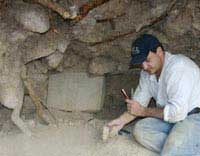Grave robbing has been a persistent issue for thousands of years in China. Historical records indicate that Cao Cao once ordered the excavation of ancient tombs to replenish military supplies. Thanks to the gold, silver, and treasures obtained from these ancient tombs, Cao Cao was able to fund his troops for three years, overcoming difficult times and eventually becoming a regional power.
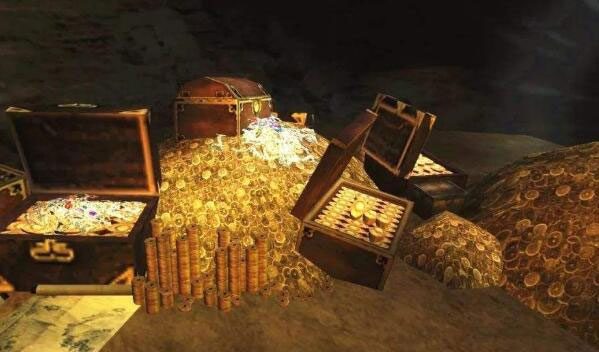
Grave robbing is an age-old problem in China. (Image: 163)
As time went on, the profits from selling artifacts, gold, silver, and jewelry stolen from tombs led many to become blinded by greed. It is said among the Chinese that “To become a millionaire overnight, just dig up an ancient tomb.”
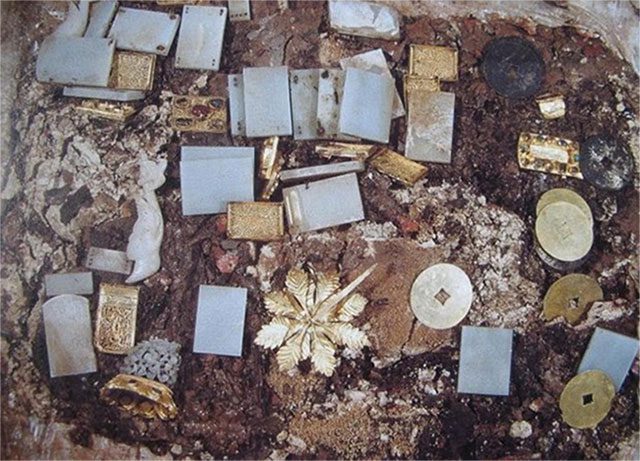
Artifacts left in an ancient tomb. (Image: 163).
Because of this, even today, many have not abandoned this profession, believing that following the dead leads to immense wealth, gold, silver, jewels, and valuable items. In regions with ancient cultural heritage sites, the issue of grave robbing has become increasingly complex.
However, for generations, grave robbers in China have established their own set of rules. According to Page 163, when breaking into ancient tombs, robbers often do not hesitate to take gold, silver, and jewels. However, they absolutely avoid touching jade objects found in the tombs of the deceased.
Later, when excavating tombs from the Han Dynasty, archaeologists were surprised to find that garments made of jade, connected by strands of gold thread, belonging to Han emperors and nobles, still contained pieces of jade. Only the strands of gold thread had been completely taken.
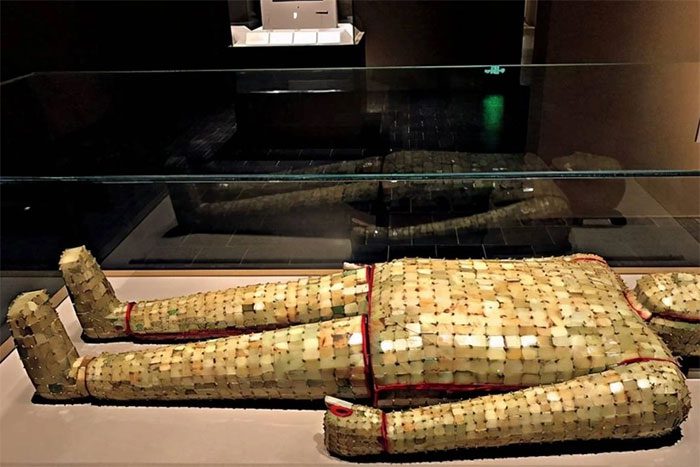
Jade garments typically only had the gold threads taken. (Image: 163).
One tomb of a royal figure from the Han Dynasty, when discovered by researchers, contained nothing but jade.
The reason grave robbers never take jade is that they believe jade in the tomb of the deceased is not clean.
Ancient Chinese believed that after death, a person must use jade to “nurture” the body. Additionally, jade was used to seal the body’s orifices to preserve the flow of air and blood and to prevent insects from entering. Since jade comes into contact with corpses, no one dares to take it.
Moreover, jade symbolizes the status and position of a person, not something that ordinary people possess. Typically, only individuals from noble families would own jade.
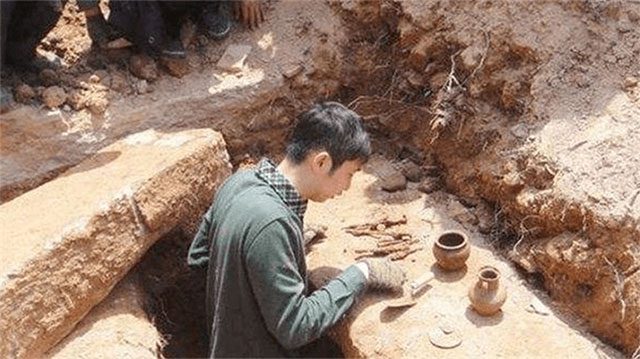
Archaeologists often arrive after the grave robbers. (Image: 163).
In ancient times, if someone suddenly possessed a piece of jade, it would be easily discovered by the authorities, akin to “waving a flag in the bushes.” Therefore, historically, grave robbers did not dare to touch jade for fear of bringing disaster upon themselves.
Additionally, many believe that pieces of jade are often passed down from generation to generation and worn for decades. They are considered to possess spiritual energy and are closely connected to the soul of the deceased. If grave robbers touch these pieces of jade or take them, they may encounter misfortune or retribution.
Grave robbing has always been condemned by Chinese society. The unscrupulous grave robbers who dare to invade the graves of the deceased are quite cunning. They view this as a profession to make a living and realize their dreams of wealth. Thus, these individuals naturally do not “harm themselves” over pieces of jade, no matter how beautiful or valuable.
This taboo has inadvertently left a significant amount of cultural relics, particularly valuable jade artifacts, for modern China.
- Grave robbers flee at the sound of a rooster crowing or a candle going out: Afraid of encountering a nemesis!
- Why did ancient Chinese prefer jade to seal the body’s orifices during burial?
- The notorious grave robber: Daring to lift the coffin lid of Empress Dowager Cixi, raiding the tomb of Emperor Qianlong









































